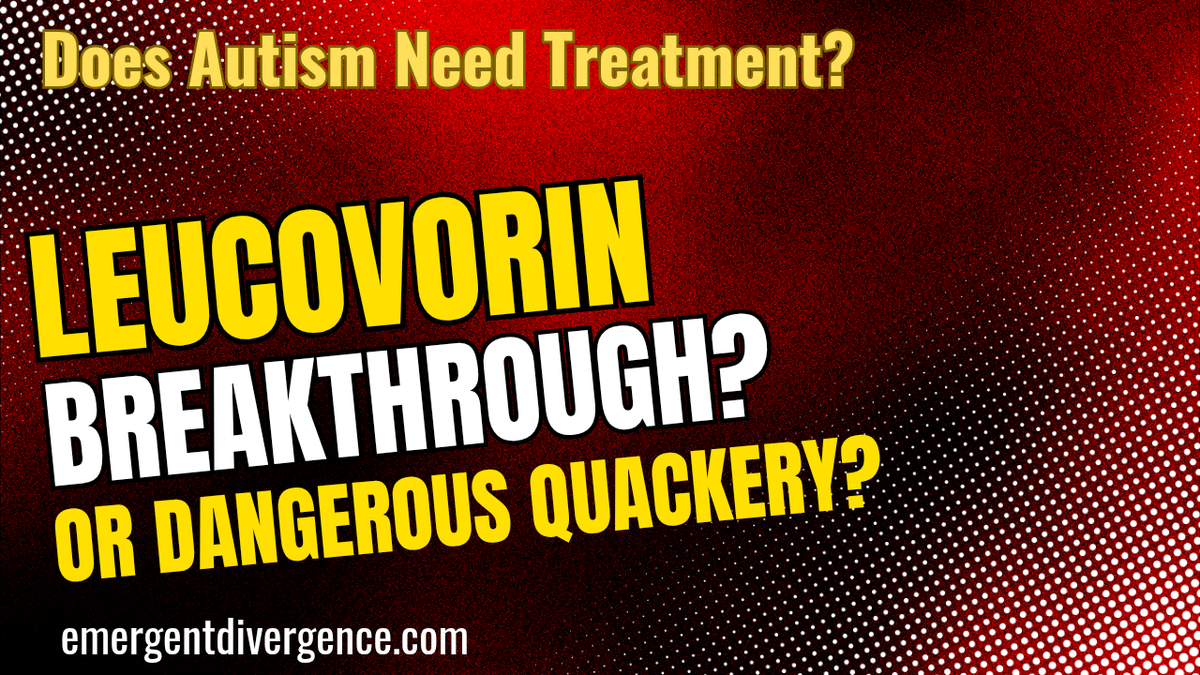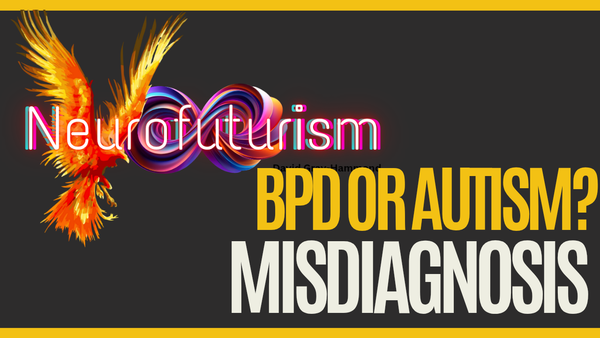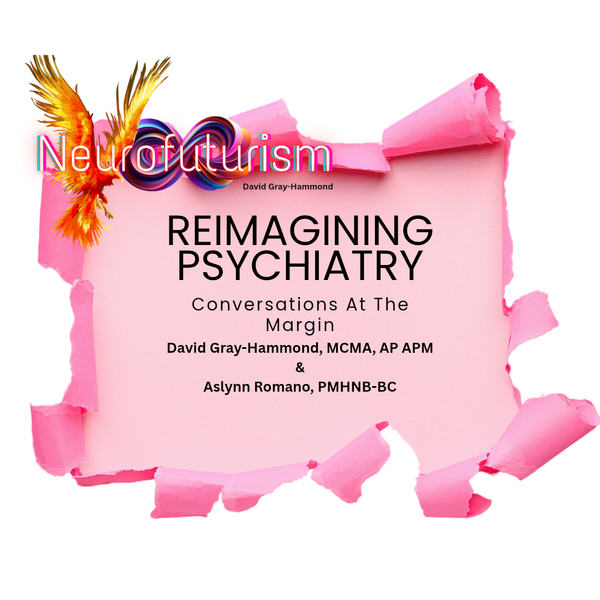Why Leucovorin is Not a "Breakthrough Treatment" For Autism

Today (18th February, 2025), The Daily Mail published an article citing an alleged breakthrough in the "treatment" of autism. They position this in reference to a statistically redundant study into the use of leucovorin as a treatment for autism; that it would seem was the inspiration for this single person case study they discussed. While it should come as no surprise that The Daily Mail has published this article, I feel it necessary to discuss why the article is misleading and the harmful stigma it contributes to.
What is Leucovorin?
Leucovorin (also known as folinic acid) is generally used as a medication that protects red blood cells while a person is undergoing chemotherapy. In particular, it is used when a person is undergoing treatment with methotrexate. It competes with methotrexate for transport into cells, and in it's active form (folic acid) allows nuclear acid synthesis to occur even when it would normally be inhibited by methotrexate.
Side effects of leucovorin commonly include but are not limited to:
- Fatigue
- Alopecia
- Leucopenia (dangerously low levels of leucocyte white blood cells)
- Seizures
As with any medication, there is a risk of anaphylaxis, a life-threatening allergic reaction. Leucovorin is not licensed for the treatment of autism, and currently, there is little evidence of it being beneficial to the point that the risks are justified.
What is The Daily Mail Reporting?
The full article that I am referencing can be found here. The article itself provides the first and last name of a three year old child who allegedly said his first words three days after starting "treatment" with leucovorin. This raises my first ethical concern with the article in that a three year old, non-speaking child is publicly named. This child has not consented to this, and may not feel positively about this in the future, but as with many Autistic children, the desire to use him as a banner to march beneath has outweighed his human right to privacy.
Furthermore, this violation of the child's right to privacy is not justified by the claims of the article title. A single case study does not amount to a breakthrough. Breakthroughs in the medical field are defined by rigorous testing on statistically significant samples. Studies by Richard Frye, the medic in question in this article, all appear to have very small sample sizes while asserting bold claims. In this article by Frye, only 14 patients were given leucovorin, and only 12 of them were monitored for changes in presentation using questionable measures.
This highlights a disturbing trend in mainstream media towards overstating results and directly empowering harmful quack treatments supported only by those on the fringes of the medical world. Have we forgotten the furore around ivermectin during the COVID-19 pandemic? Stories like these cost lives, such as the life of the young boy killed in the hyperbaric chamber, used off-licence to "treat" his ADHD. These quacks pray on parental fear and desperation, and media outlets should be disempowering them, not increasing their reach.
Broader Issues in The "Treatment" of Autism
The underlying assumption of autism "treatments" is that being Autistic is a state that arises from biological deficit resulting in abberant functional limitations. This itself comes from a fallacious assumption that some functional limitation is more acceptable than others. All humans have functional limitations, as evidenced by my inability to change colour and take flight at will. The idea that limitations associated with Autistic bodyminds need to be corrected is itself a meuro normative assumption.
Whether the outcome of a functional limitation is positive or negative is largely based on its environmental context, including the perceptions of others and the person experiencing those perceptions. In this case, the highlighted limitation was that the child was non-speaking. Because neuronormative society positions verbal communication as a target to be achieved by all rather than an autonomous choice, treatment of the child with a potentially harmful drug has been justified by a media outlet with a vested interest in the oppression of marginalised groups.
Autism is not a medical issue. It is a neurocognitive identity that has been positioned as such because fully accommodating it is not a priority of the world we have created. Whether it is positive or negative is a subjective matter, with the only objective truth being that autism, like all neurodivergence, is defined by its neutrality. It is high time that academics realised how the medicalisation of autism contributes to its pejoration and expands the negative experiences it asserts to be fighting. The problem is not autism. The problem is neuronormativity.


